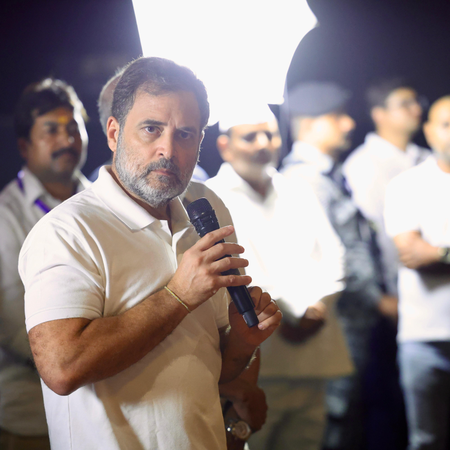Headlines
Rahul Gandhi’s Bihar visit triggers political firestorm; NDA leaders launch sharp attacks

Patna, June 6
As Congress leader Rahul Gandhi began his extended tour of Bihar, several leaders from the ruling NDA, including Union Ministers Jitan Ram Manjhi, Giriraj Singh, and Bihar Minister Nitin Naveen, launched a barrage of criticism aimed at him and the grand old party.
Union MSME Minister Jitan Ram Manjhi, in a post on social media platform X, welcomed Rahul Gandhi to what he called the "new Bihar", contrasting it with the alleged lawlessness during the RJD-Congress rule two decades ago.
“Welcome Rahul Gandhi, to the good governance in Bihar. Bihar is no longer the same that Lalu Prasad’s RJD and the Gandhi family left us 20 years ago… If Rahul Gandhi had come to Bihar during Lalu Prasad’s rule, he could have been kidnapped,” Manjhi wrote, suggesting that Sonia Gandhi would have had to negotiate with criminals through Lalu Prasad for her son's release.
Union Minister Giriraj Singh escalated the rhetoric, accusing Rahul Gandhi of actions that “defame the Indian Army”, going as far as to say: “This man speaks the language of Pakistan. He has insulted our army’s symbols, and that is an act of treason.”
Meanwhile, Bihar Road Construction Minister Nitin Naveen accused Rahul Gandhi and the Congress party of disrespecting Dr B.R. Ambedkar, demanding an apology to the nation.
“Rahul Gandhi should tell the nation why his party never gave due respect to Babasaheb Ambedkar. The exploitation of women was also at its peak during Congress rule,” Naveen alleged in Patna.
Amid the political heat, Rahul Gandhi arrived in Gaya to meet the family of Dashrath Manjhi, the legendary “Mountain Man” of Bihar.
He is also scheduled to visit Rajgir in Nalanda, where he will address a 'Samvidhan Sammelan' and return to Gaya to participate in a Mahila Samvad (women’s dialogue) programme.
The visit is part of Congress’ broader campaign to revive its presence in Bihar ahead of the Assembly elections, aiming to engage with grassroots communities and marginalised sections.



































